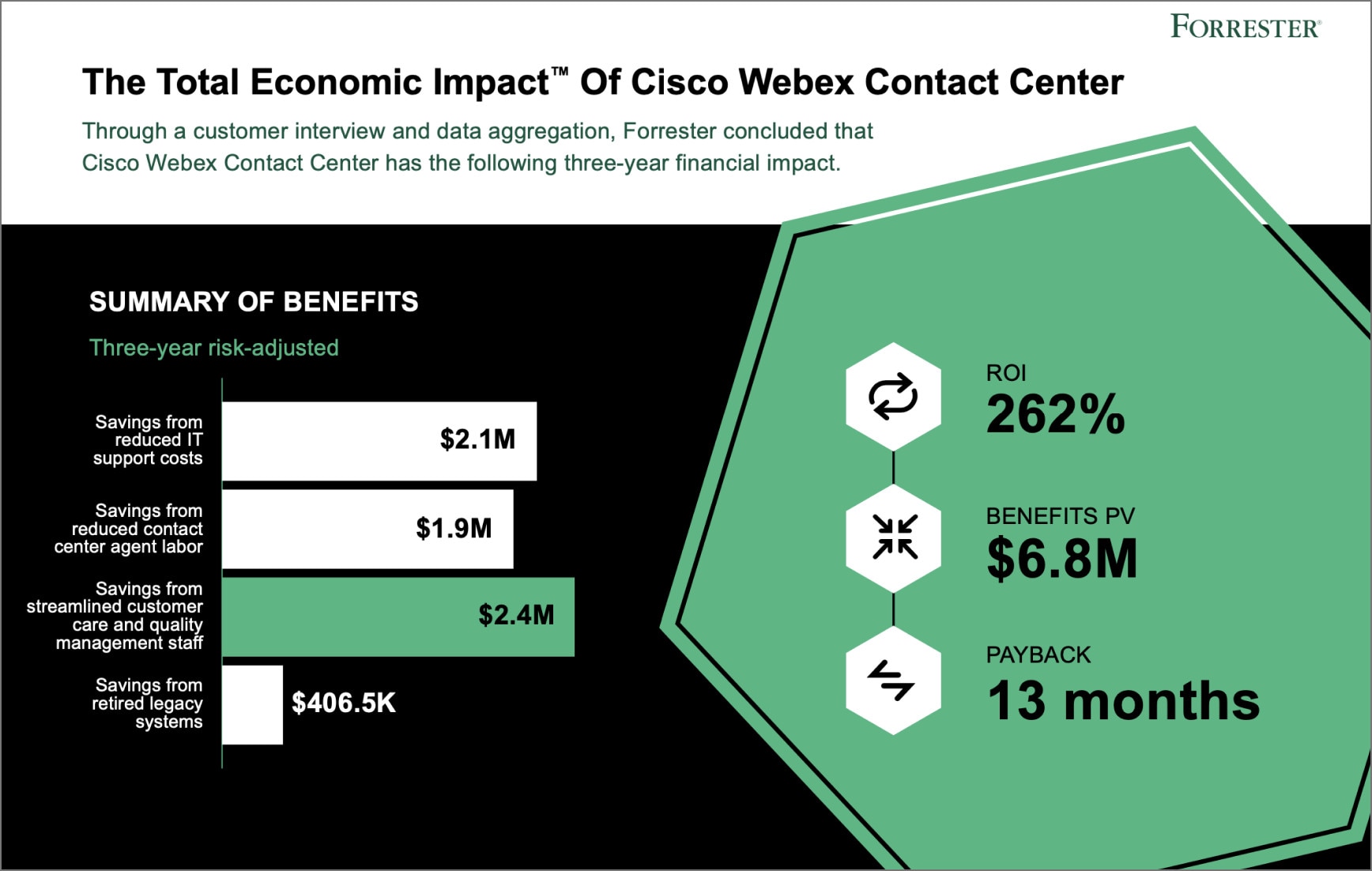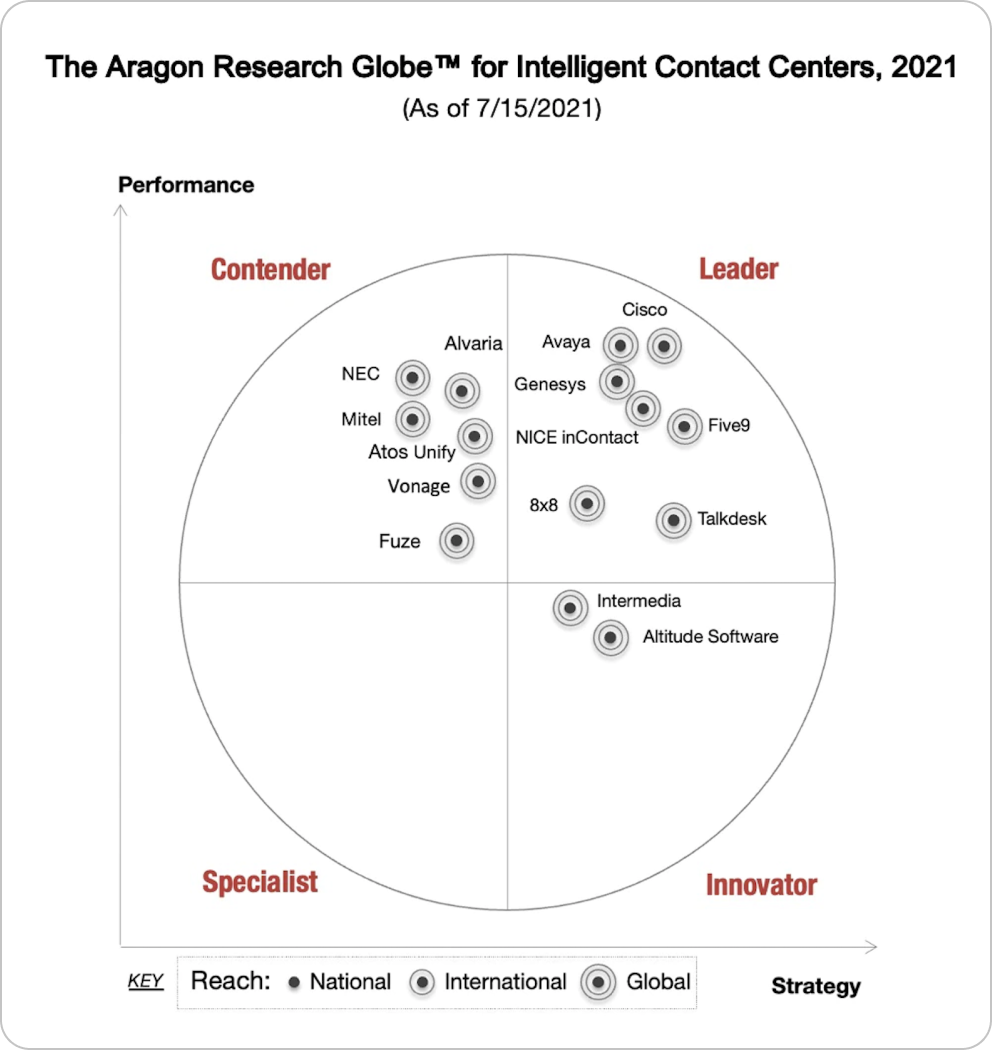What is a cloud contact center?
Definition: A cloud contact center is a software solution that allows organizations to handle all inbound and outbound customer communications. Cloud contact centers expand on the functionality of traditional call centers by enabling customers to connect through their preferred channels, including SMS text messaging, voice, chat, email and social media.

What are the benefits of a cloud contact center?
The biggest opportunity of a cloud deployment is the ability to quickly transform your contact center from a cost center to a strategic business asset. The cloud requires no upfront capital investment, plus it gives all your users instant access to new features without disrupting their workflows.
A cloud contact center provides easy access to newer technologies and integrations to other cloud applications critical to running your business. As such, the benefits of a cloud contact center include higher levels of business agility, flexibility, scalability, innovation, and customer success.
In regards to business agility, a cloud contact center provides flexibility and scalability, allowing you to scale up and down based on seasonal needs and as your business evolves.
Hosting your contact center in the cloud enables faster deployments and more frequent updates of new capabilities, which optimizes IT resources and reduces employee disruptions.
Is a cloud contact center more cost-effective for my business?
In our experience, yes. We commissioned a Total Economic Impact study by Forrester to discover the cost-effectiveness of our cloud contact center. Below is the Executive Summary. You can download the full report here.
"Forrester’s analysis of a current Cisco customer found that Cisco Webex Contact Center reduced contact center costs, improved visibility, simplified management, and boosted customer experience (CX) — while providing dependability, agility, and the ability to globally scale. The interviewed organization, with 2 million annual calls, achieved benefits of $6,802,841 and an ROI of 262% over three years by replacing its legacy on-premises products with Cisco Webex Contact Center and its complementary set of Webex collaboration tools."

While the Forrester study was quite positive, every business must determine whether they want capital expenditures or operating expenditures when choosing between an on-premises contact center and a cloud contact center. On-premise require upfront costs for hardware, licenses, and housing servers onsite. They also require onsite installations once every 5-10 years as hardware ages and technology evolves.
While cloud contact centers do not require large upfront hardware or infrastructure costs, they do require a strong internet connection with sufficient bandwidth. Ongoing costs include a monthly subscription.
Over time, cloud contact centers are more cost-effective and easier to integrate with CRM and other business applications. They also bring faster innovation which increases the potential for new revenue opportunities and competitive advantage.
How can cloud contact centers improve customer experiences?
Today’s empowered customers demand and deserve to connect with organizations in whatever way is best for them. When you couple this with research showing the unprecedented rates that customers are switching brands, it’s clear why customer experiences are more important than ever. Watch this video for a deeper dive into how customer experiences are impacted by cloud contact centers.
Is a cloud contact center secure?
A cloud contact center provides high levels of security and data privacy. There are strict regulatory and legal compliance requirements for cloud-hosted solutions to ensure customer privacy is protected at all times. Cisco’s cloud solutions adhere to the highest security standards and quality of service and performance, to give you and your customers peace of mind.
What is the difference between a cloud contact center and an on-premise contact center?
On-premise contact centers are owned and managed by the business and require upfront costs for hardware, licenses, and servers which are hosted onsite and can all be very costly. A cloud contact center is hosted in the public cloud and doesn’t require upfront hardware or on-site server costs. Instead you’ll pay a monthly subscription fee for cloud services.
How does migrating to a cloud contact center work?
At Webex by Cisco, we take a “cloud-first, not-cloud only” approach to contact center solutions. We recognize how time-consuming and costly a complete contact center infrastructure upgrade is, so we offer several strategies that meet your specific technology refresh and migration needs.
A hybrid approach enables you to keep your on-premises contact center infrastructure and layer cloud services on top, giving you access to innovative technologies such as artificial intelligence (AI), machine learning (ML), natural language processing (NLP), and cloud data analytics. This approach lets you protect your on-premise infrastructure, while transitioning parts of your contact center to the cloud at your own pace.
Can you share examples of customers migrating to a cloud contact center?
Sure can. Sheila McGee-Smith, a leading customer experience industry analyst, wrote a paper that highlights "the experiences of four organizations who have chosen to move their contact centers to the cloud. The factors that drove each to initiate a change in their contact center solution is unique. But there are also common elements in each company’s story, in the benefits they have derived since implementation and their plans for adding functionality in the future."
Can you show me a cloud contact center, instead of telling me about it?
This 5-minute video should help:
What is the best cloud contact center solution?
We try to acknowledge our biases around here, so that's up to you to decide. But we recommend downloading this report from Aragon, an independent research and advisory firm.
They compared our cloud contact center against 15 key providers. Here’s a teaser from the introduction:
“While demand for cloud contact centers is at an all-time high, the reason for this is the need for a modern offering that is increasingly intelligent. The race to the intelligent contact center is on, and going forward, the base capabilities for ICC will be assumed. The challenge will be for automation and intelligence, both for human agents and now, increasingly, for the computer-based virtual agents. This Research Note evaluates the trends in the market and identifies 15 key providers that are making a difference in intelligent contact centers.”
And here’s how how they positioned us:





